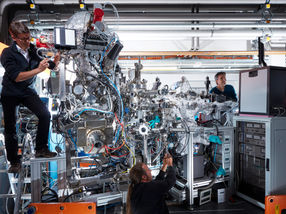Dioxin and EHEC yesterday, antimicrobials today - what next?
The BfR celebrates its 10th anniversary under the motto "avoiding crises before they arise"
Advertisement
Does the use of antimicrobials in animal production pose health risks to consumers? How safe is food in Germany? From a scientific viewpoint, what events carry a health risk for consumers? What crises may we be faced with in future? Ten years after the foundation of the Federal Institute for Risk Assessment (BfR), its President Professor Dr. Dr. Andreas Hensel is positive in his assessment of past achievements. "Food in Germany is safe. Nevertheless, we must always be prepared for possible incidents. Our goal is to avoid crises before they develop." With its scientifically based risk assessment, the BfR is of great importance to health-related consumer protection both in Germany and abroad.
Last year alone, numerous events dominated the headlines. In the first half of the year 2011, increased dioxin contents in eggs and meat caused quite a stir. The EHEC outbreak from May to July 2011 resulted in over 50 casualties and was the worst food-borne bacterial outbreak in Germany since the Second World War. In the second half of 2011, the discussion of the effects of the use of antimicrobials in animal production was revived, not least due to a new study conducted on behalf of the North Rhine-Westphalian Ministry of Consumer Protection.
Food safety is the result of a number of analyses and systematic investigations along the food supply chain, from the producer to the plate of the consumer. Apart from the high food safety standards introduced by risk management, scientific risk assessment is a key element in guaranteeing and further improving the safety of our food. The most serious yet often underestimated risks are posed by microorganisms.
The most important task of the institute is to recognise potential risks in food, feed, materials and products early on and to suggest suitable measures in order to minimise these risks quickly and effectively. The BfR still has the statutory mandate to inform the public on potential, identified, and assessed risks to consumers from food, materials and products.
Most read news
Other news from the department science

Get the chemical industry in your inbox
By submitting this form you agree that LUMITOS AG will send you the newsletter(s) selected above by email. Your data will not be passed on to third parties. Your data will be stored and processed in accordance with our data protection regulations. LUMITOS may contact you by email for the purpose of advertising or market and opinion surveys. You can revoke your consent at any time without giving reasons to LUMITOS AG, Ernst-Augustin-Str. 2, 12489 Berlin, Germany or by e-mail at revoke@lumitos.com with effect for the future. In addition, each email contains a link to unsubscribe from the corresponding newsletter.
































































